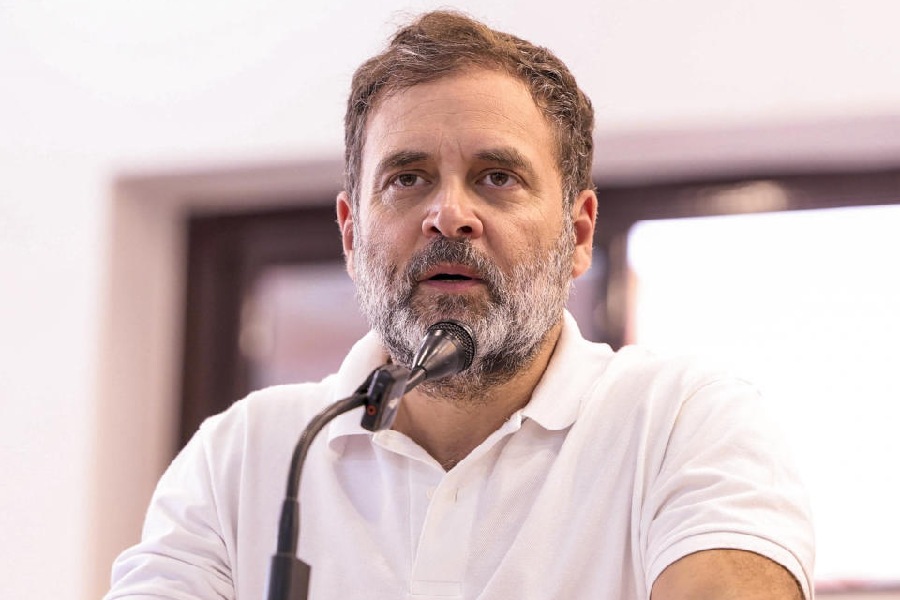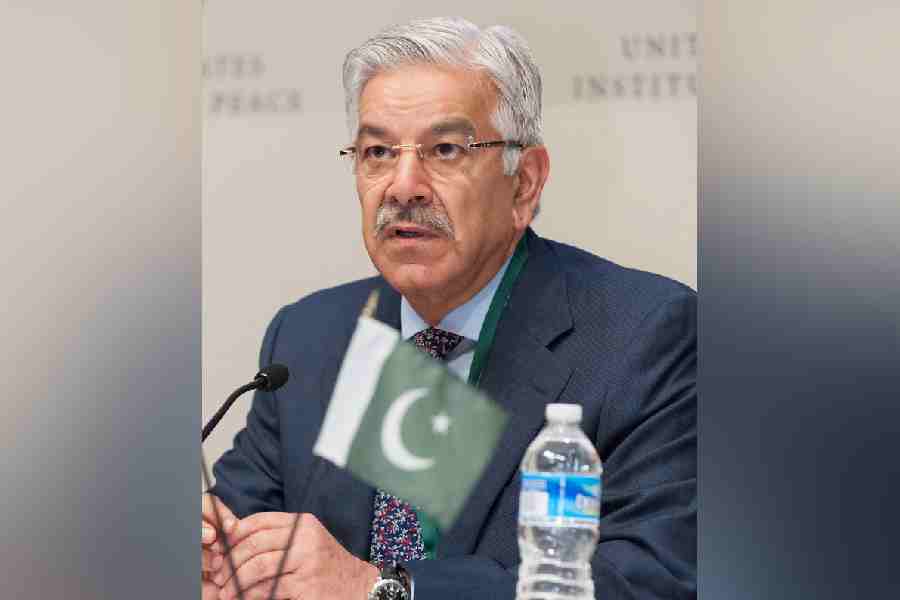 |
| (From left) Director-general of Dr Zakir Hussain Institute Uttam Kumar Singh, former chief minister Jagannath Mishra and chairman of Bihar State Human Rights Commission retired Justice S.N. Jha at the event on Sunday. Picture by Deepak Kumar |
Patna, Jan. 16: Activists working to spread awareness on Right to Information Act (RTI) came together on one stage today to share their views on the issue at an event organised by an NGO, Khabarpalika.
The NGO was celebrating its first anniversary on the premises of Indian Institute of Business Management, Patna.
The event saw felicitation of RTI activists from across the country. The activists spoke on the subject — “Right to information and the answer of corruption”.
In his keynote, Uttam Kumar Singh, director-general of Dr Zakir Hussain Institute, said: “Between 2009 and 2010, more than 1,84,000 RTI applications were filed. The figures are encouraging and they have also added over Rs 11 lakh to the government’s account. Most of these cases were related to the human resource development department and food and civil supplies department. The least number of queries came for issues related to gram panchayat. Many people also complained about their grievances not being addressed and some claimed they had been framed in false cases because of their query. The loopholes are there but that should not deter the people and the activists from exercising their rights. They should not lose confidence as it is just the beginning. Their efforts would produce positive results.” Singh said he was enthused by the presence of so many activists at the event.
“Today, RTI activists have come here from Madhya Pradesh, Uttar Pradesh and Uttarakhand. In one year, Khabarpalika has helped around 28,000 people exercise their right and get information. The success margin was low as only 1,100 applicants received the exact information they wanted, but the organisation is upbeat. Next month, it is launching a community radio for RTI and toll-free SMS service. Community radio would initially start from Bihar and then planned from other centres in the country.” S.N. Jha, a retired judge and chairperson of State Human Rights Commission, said: “Right to information is in its infancy, so it will be a little difficult initially. But it can’t be ignored as it is needed to bring transparency in public life. People had to go to MLAs and ministers when there was no such law but today one can access any information sitting at home if he knows the right procedure. It is a kind of revolutionary change that the society has seen and people should welcome this idea.”
Former chief minister Jagannath Mishra was also present at the meet. Lauding the RTI initiative, he said: “Right to information is a system which aims to set up a system where citizens have the right to access information and find out whether their government is actually working for their welfare. Needless to say that violation of rights also came with it. It all depends on the people and the intention with which they are seeking the information.”
Mamta Malhotra, editor of Khabarpalika magazine, said: “Our society gives birth to corruption and corrupt people. Just because no one wants to wait in long queues or join to the crowd like others, they choose to bribe the officers and get their work done. Those who bribe are more responsible for corruption than those who accept the money. It’s the high time people start thinking about it.”










